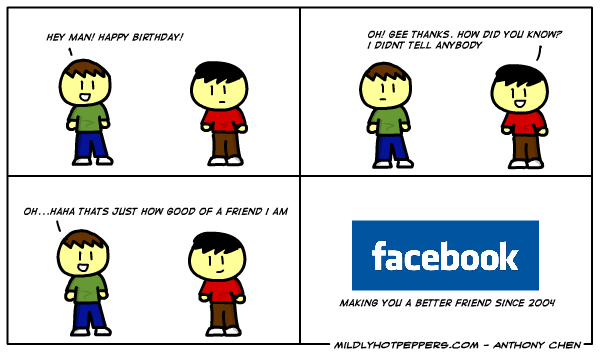

Sunday, 26 April 2015
Summary!
IT IS THE ENDDDD!
Like Finally!

I must say that I did learn about things that I never knew existed on the Internet. Yes the Internet has become a part of everyone's lives that no one can live without it anymore. The Internet is so powerful in influencing people's mindsets in any area, be it news or politics. There are many ways the Internet can be used for entertainment, (beyond Youtube), help in assignments, ensuring you get the privacy when online (using Internet tools), help in getting directions (beyond Google maps) and the list goes on!
I used to think it was easy to start a business on the Internet especially with the help of social media. I was so wrong. It is very very difficult to be able to sustain a business online. In fact, I think they are more failures then success stories of such businesses.
Social media! The effect it has on everyone today! It it has changed the whole idea of communication and socialization. It has not only influenced the young, but the old too. No one can live without it. Literally. Not just in this country, but the entire world.
Yes we all knew education would benefit quite a bit from Internet but not to the extent I thought it would. It has changed the entire meaning of education from what it was was 50 years ago. I bet the whole idea of education would change in the future as well.
My whole blogging experience was something that I initially unwillingly did (being honest here) but as I got to learn more and more, my whole conception of what the Internet is all about has changed. It is actually a lot more powerful and influential than what I used to think it was. I gotta admit this, but I kinda enjoyed blogging! (my first ever blog!)
Thank you Mr Abel Choy for giving us such an experience.
Like Finally!

I must say that I did learn about things that I never knew existed on the Internet. Yes the Internet has become a part of everyone's lives that no one can live without it anymore. The Internet is so powerful in influencing people's mindsets in any area, be it news or politics. There are many ways the Internet can be used for entertainment, (beyond Youtube), help in assignments, ensuring you get the privacy when online (using Internet tools), help in getting directions (beyond Google maps) and the list goes on!
I used to think it was easy to start a business on the Internet especially with the help of social media. I was so wrong. It is very very difficult to be able to sustain a business online. In fact, I think they are more failures then success stories of such businesses.
Social media! The effect it has on everyone today! It it has changed the whole idea of communication and socialization. It has not only influenced the young, but the old too. No one can live without it. Literally. Not just in this country, but the entire world.
Yes we all knew education would benefit quite a bit from Internet but not to the extent I thought it would. It has changed the entire meaning of education from what it was was 50 years ago. I bet the whole idea of education would change in the future as well.
My whole blogging experience was something that I initially unwillingly did (being honest here) but as I got to learn more and more, my whole conception of what the Internet is all about has changed. It is actually a lot more powerful and influential than what I used to think it was. I gotta admit this, but I kinda enjoyed blogging! (my first ever blog!)
Thank you Mr Abel Choy for giving us such an experience.
 |
| Biggest Takeaway: Never underestimate the power of the Internet! |
Future of Internet

The Internet already has such a huge impact on us today. How much more can it impact us? What will happen? Nothing is definite on what's going to happen in future but of course, many have their various predictions.
According to Bridget Shirvell, here are some predictions research companies have about the future of Internet:
- Information sharing over the Internet will be so effortlessly interwoven into our daily lives that will be invisible. It will be flowing through electricity, often through machine intermediaries
- The Internet of things, artificial intelligence and big data will make people more aware of their world and their own behavior.
- Augmented reality and wearable devices will be implemented to monitor and give quick feedback on daily life. especially in regard to personal health.
- The spread of "Ubernet" will diminish the meaning of borders, and new "nations" of those with shared interests may emerge online and exist beyond the capacity of current nation-states to control.
- An internet-enabled revolution in education will spread more opportunities with less money spent on buildings and teachers.
- The internet will soon be entirely wireless
- The internet will carry exabytes or even zettabytes of content.
- It will attract more hackers because more critical infrastructure like the electric grid will be online..
It is impossible to go into detail of every point mentioned above. Therefore, Internet of things will be the focus for this post.
Internet of Things
The Internet of things (IoT) is a network of physical objects or "things" embedded with electronics, software, sensors and connectivity to enable it to achieve greater value and service by exchanging data with the manufacturer, operator and other connected devices. Each thing is uniquely identifiable through it embedded computing system but is able to perform within the existing Internet infrastructure.
IoT technology is already being incorporated and utilized in our lives today!

It is amazing how the Internet is already being utilized to this extent in our daily lives. There are gadgets that have already been made or are in the process of being made that incorporate IoT technology. One clear example of such a gadget would be Sen.se Mother.
The video below shows what it typically can be used for. Although it is in a different language, it is pretty easy to understand what its uses are.
IoT technology is already being incorporated and utilized in our lives today!

It is amazing how the Internet is already being utilized to this extent in our daily lives. There are gadgets that have already been made or are in the process of being made that incorporate IoT technology. One clear example of such a gadget would be Sen.se Mother.
The video below shows what it typically can be used for. Although it is in a different language, it is pretty easy to understand what its uses are.
Sen.se mother is actually a cunning spy, ready to report on every detail of family movements and daily activities. They have small sensors known as motion cookies which can be given to every family member so everyone knows where everyone else is at any given time, as long as there is access to the app. The motion cookies are small and slick, they can be affixed to almost anything. They are really smart and can detect and analyze the movements of objects and people. They also include a sensor that measures the surrounding temperature. It simply needs to be connected to the Internet router.
How to use it?
1) Select the use you want to make
2) Place a motion cookies on the appropriate object
3) Monitor every detail of the activity anytime you like
4) Get alerts when it's important
For more information, https://sen.se/store/mother/ (Can be bought for $299 if anyone wants one!)
Sen.se mother is just one of the many gadgets that utilizes Internet in such an easy yet meaningful way. They are of course many other products created or yet to be created that will use IoT. With IoT already being implemented, it is a matter of time where we will be living in a world where literally without internet, nothing can function. I mean who knows! It is quite cool and scary at the same time, from what we used to be to what we have evolved to today.
I'll end with an image that just shows how impactful IoT technology alone will be in the next coming few years in terms of it being utilized in different areas such as merchandising, E-commerce and health and medicine.

How to use it?
1) Select the use you want to make
2) Place a motion cookies on the appropriate object
3) Monitor every detail of the activity anytime you like
4) Get alerts when it's important
For more information, https://sen.se/store/mother/ (Can be bought for $299 if anyone wants one!)
Sen.se mother is just one of the many gadgets that utilizes Internet in such an easy yet meaningful way. They are of course many other products created or yet to be created that will use IoT. With IoT already being implemented, it is a matter of time where we will be living in a world where literally without internet, nothing can function. I mean who knows! It is quite cool and scary at the same time, from what we used to be to what we have evolved to today.
I'll end with an image that just shows how impactful IoT technology alone will be in the next coming few years in terms of it being utilized in different areas such as merchandising, E-commerce and health and medicine.

Saturday, 18 April 2015
Internet & Journalism

Credits: Shayne Bowman and Chris Willis, Christopher Harper,
In the past, journalism was a one way communication. Citizens would tune into their radios, televisions or even newspapers to find out what is happening around the world. No one would question their credibility. People read it and people believed it. #endofstory.
Journalism in Digital Age
How is digital journalism different?
Digital journalists consume and produce content at the same time, constantly publishing what they hearing and reading. In other words, they have become prosumers.
- Online journalism can provide a variety of media text, audio,video and photographs unlike other media.

News sites have been handling the growing demands of readers and viewers effectively despite the significant decrease in revenue from print newspapers . Information is constantly updated, improved on, changed, developed on major publications sites. In other words, information has becoming free-flowing for everyone. Just an idea on how many people in the world rely on the Internet for information:
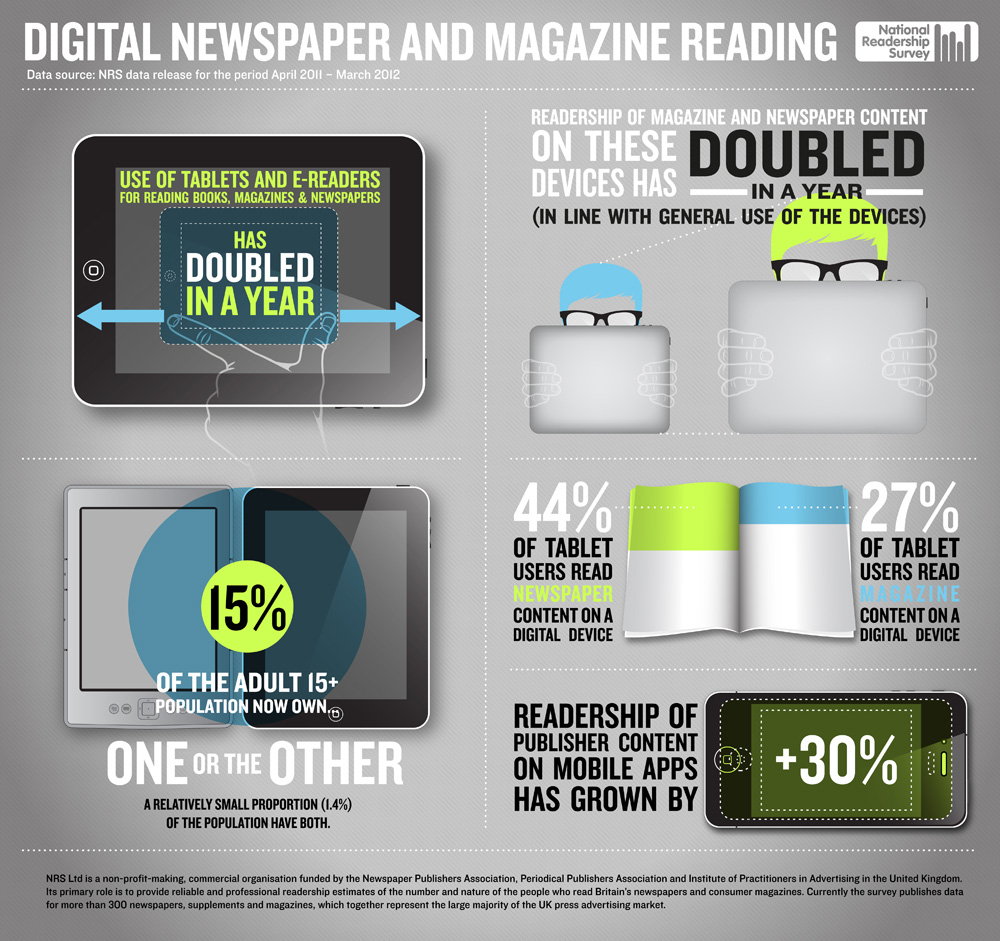
But what does that mean?
It gave rise to the idea of Digital Journalism.
Digital journalism is not just about putting a story on the web and believing it instantly. The internet makes it more possible to interact with audience like never before Responses to a story are instant and a reader might just even know more about the story than the journalist actually knows. Questions on the accuracy of the story may also be raised.
- Online journalism can provide outlets for building your own 'printing press', aka Citizen Journalism.
Now, everyone is armed with web publishing tools and platforms. The audience now has the means to become an active participant in the creation and criticism of news and information.
The Internet has become a medium for news and it is maturing. With every occurring event, online media evolves.
There has been a growth in the number of people utilizing weblogs as it is of low cost and it is easy to use. Weblogs have expanded their influence by attracting larger circles of readers while appealing to their target audiences. Many users use it as a means of self expression. It has become the new form of journalism as anyone can publish and maintain a site. The advantage to this new form journalism is that it brings new voices in to discuss various topics. However, this may be detrimental to traditionally experienced journalists. Other forms of citizen journalism include forums, chat rooms and newsgroups and even various social media platforms.
There is often no or very little editing or journalistic flow in citizen journalism. In such a form of journalism, people are given the freedom to publish whatever, therefore, focusing on quantity instead of filtering the information published (unlike traditional news organizations). How can anyone trust anything that is being written online? What if it is not credible? How would you even know? Traditionally, journalism is seen as the profession of gathering, editing and publishing news reports for newspapers, magazines, television or radio. Today, people turn to the Internet for news, even if they are from not credible sources. People rather believe them because they feel that information in newspapers aren't reported fully.
According to Kovach and Rosenstiel, technology, along with globalization and the conglomeration of media, is causing a shift away from journalism that is connected to citizen building.
In my opinion, the future of journalism indeed looks competitive, high quality and well funded. With such drastic changes, should it even be called journalism? That's the question that is puzzling.
Saturday, 11 April 2015
Politics & Internet
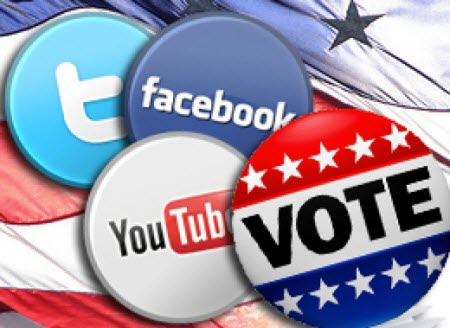
Cell Phones, Social Media and Campaigns in US (2014)
Credits: Aaron Smith
Social Media platforms like Facebook and Twitter are playing a prominent role in how voters get political information and follow election news closely.
The number of Americans who use their cell phones to track political news or campaign coverage has doubled since the last elections. The number of Americans who follow candidates or other political figure on social media has also risen sharply.
People prefer following political figures on social media because they believe that you get authentic political information that has not passed through the traditional media 'filter'.
Digital politics also contribute to more people engaging in the various campaign (Democrats vs Republicans).
(what is digital politics? using digital technology including the Internet as a means to conduct politics/campaigns)
With more political figures on social media, more people follow their chosen political figure, more will participate in the traditional campaigns activities. Traditional activities such as volunteering, donating money, encouraging others to get out and support their preferred candidates and causes.
With more smartphone ownership, voters of all ages are more likely to use their cell phones for political and election news as compared to the previous election in 2010.
As political behavior on social media has become more prevalent, the reasons voters gave for following political figures have shifted in comparison to the previous election.
The reasons are:
1) Finding out about political news before other people do is considered a major reason.
2) Feel more personally connected to political candidates or groups is considered a major reason.
3) Getting more reliable information than what is available from traditional news organizations is a major reason.
More information on Digital Politics:

Will the Internet Remake Politics?
Credits: Boban Markovic
With the change of social interactions and means of communication, shift in politics were definitely bound to happen. Political campaigns, social movements and web revolutions are indicators that the Internet is already changing politics in terms of political communication, participation and mobilization.
The Internet's impact on politics can be seen through the parts of political campaigns and rallies for various social issues. Media has always been used by politicians to educate, inform, persuade and manipulate public opinion. For example, John F. Kennedy took advantage of Television in 1960 and won the elections. Barack Obama used the Internet to win the Presidential elections in 2008 by utilizing Youtube, Facebook and Twitter.
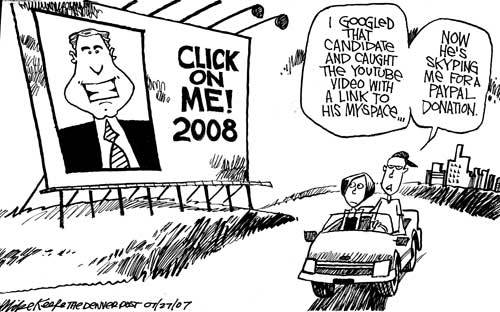
It interesting to note that the Internet has brought more transparency to politics. Any information disclosed online, it is nearly impossible to hide it or prevent it from being shared. As as a result, politicians are very careful in utilizing the Internet as a tool of communications. Media strategists have also begun to measure effectiveness of political campaigns by the number of likes and tweets.
Campaigning is also transferred from streets and rallies to social networks.
The Internet's rise has helped social movements to become more suitable for a globalized world. It is now easier to expand, organize and get public attention when sending messages. Also, now with improved communication, barriers are lowered for the entrance of new movements and increased mobilization of people. Any issues raised online, users learn about them almost instantaneously. Many issues have also triggered a number of petitions, rallies and marches in the world. This proves that the form of political participation has changed and indeed how powerful it has become.

The Internet's impact on politics in the 21st century seems to be unquestionable. Political campaigns, social movements and web revolutions indicate that the Internet not only strengthened popular reaction and mobilization, but also degraded state sovereignty.
Monday, 6 April 2015
Internet Tools

Cool Internet tools that I have never heard of
Credits: Tami Wessley
Awesome Screenshot
(available for Google Chrome only)
It is functional yet easy to use extension that will help take screenshots. You are able to capture the visible part of a page, a specific part of the page or even the whole page. You are able to add annotations, comments, blur sensitive information and share with one click uploads.
Disconnect
(available for Google Chrome and Firefox)

It stops sites from tracking your movements on the web. It blocks third party cookies and gives control over site scripts. It is able to protect private information that are vulnerable to being tracked by cyber criminals. It is also able to privatize your search by keeping you anonymous. It is basically gives the privacy that everyone wants! (at least me)
dotEPUB
(available for Google Chrome and Mozilla Firefox only)
It allows you to convert any webpage and download them to any device- from e-readers, tablets, smartphones, netbooks to desktop computers. You're able to save it and read them later. (even offline!!) With this, you're able to build a personalized library of news articles, blog posts and necessary websites.
Evernote WebClipper
(available for Internet Explorer, Firefox, Safari and Google Chrome)
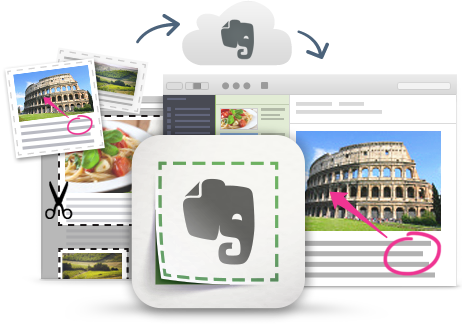
It lets you grab nearly anything online and put it into a Evernote book. It is then synced on all devices with your account to recall important web snippets. It can be especially useful when doing research. You are able to save your interests and have the convenience of reading them anywhere you go.
Ghostery
(available for Safari, Internet Explorer and Firefox)
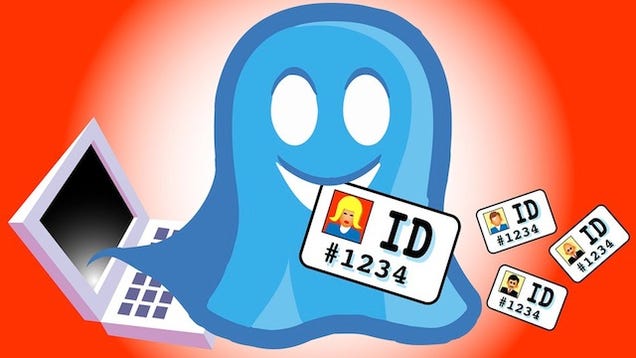
It works similarly to Disconnect. It shows tags, web bugs, pixels and beacons that are included on web pages for the purpose of tracking online behavior. However, Ghostery is able to track more than 1,400 trackers and gives a list of all the advertisement networks, behavioral data providers, web publishers and other companies that are interested in the activities carried out by you on the Internet! With this whole long list, you will then have the ability to prohibit them from collecting your information.
Hootlet
(available for Google Chrome and Firefox)

It allows you to quickly and easily share content to your social media networks from the Web. For example, you can watch a hashtag with live updates while surfing the Web.
HoverZoom
(available for Google Chrome)
It helps enlarge thumbnails to full size images. It works on sites like Facebook, Tumblr and Amazon for easy magnification and a faster and better browsing experience.
PanicButton
(available for Google Chrome)
It is especially a useful tool if you utilize a shared PC or enjoy browsing the Internet very often. What is does is that it will hide all opened tabs in your browser with just one click. It will then be saved as bookmarks in a separate folder. The PanicButton icon will then show you the number of hidden tabs and you are able to restore them by re-clicking on them.
TooManyTabs
(available for Google Chrome)

It helps clean up your desktop by organizing tabs you have opened. You are then able to organize the tabs by creation time, domain or title. You are also able to preview each tab's content and restore recently closed tabs. Thus, making it more organized which makes it easier when browsing for something in particular.
Conclusion

I never knew about such tools and it is pretty shocking to see what it is actually available on the various browsers.With more knowledge on all these Internet tools, I would definitely incorporate them because they are so useful! It is amazing how many may not be aware of such simple Internet tools that are available to everyone easily(including me). Such simple tools can help solve our daily problems that we face while browsing the Internet and make our experiences a lot more enjoyable. The best part, most of these Internet tools are user-friendly and are available just by downloading them. oh yes, the internet tools are freeeeee!